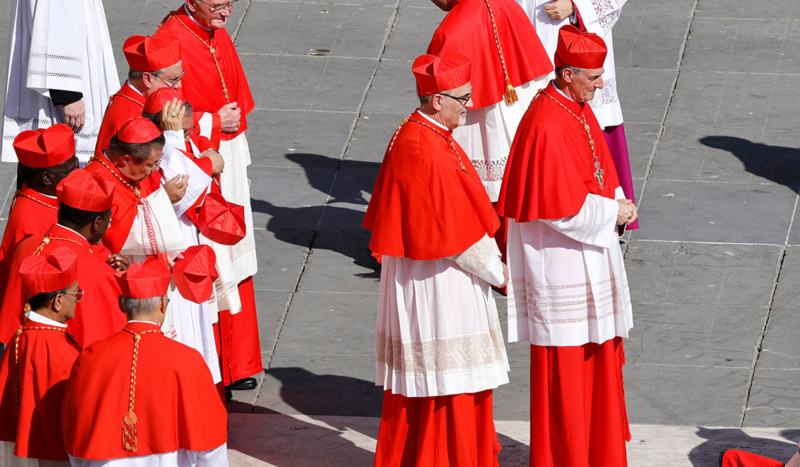
Riccardo De Luca - Update / Shutterstock.com
VATICAN CITY // In an unexpected statement released the morning of April 30, the Congregation of Cardinals addressed two concerns raised by some critics, clarifying that these issues will not affect the legitimacy or validity of the upcoming conclave — a crucial moment for the Church.
Some commentators have argued that the conclave could be rendered canonically invalid because Pope Francis appointed 135 cardinal electors, exceeding the limit of 120 established by Pope John Paul II in his Apostolic Constitution Universi Dominici Gregis. Critics note that Pope Francis did not amend the existing rules before creating this larger number of cardinal-electors.
Others have raised concerns about the uncertainty surrounding the status of Cardinal Giovanni Angelo Becciu. Stripped of his cardinal privileges by Pope Francis in 2020, Becciu later claimed that his status had been effectively restored when he was invited to attend the most recent consistory, an event reserved for cardinals.
In their statement, the cardinals gathered in Rome declared that they wish “to make known the following two procedural issues on which it has had the opportunity to reflect and debate in recent days.”
Addressing the issue of the number of cardinal-electors, the Congregation stated that Pope Francis, “by creating a number of Cardinals greater than 120, as established by n. 33 of the Apostolic Constitution Universi Dominici Gregis of Saint John Paul II, of 22 February 1996, in the exercise of His supreme power, has dispensed from this legislative provision, whereby the Cardinals exceeding the limit number have acquired, in accordance with n. 36 of the same Apostolic Constitution, the right to elect the Roman Pontiff, from the moment of their creation and publication.”
On this matter, experts such as Cardinal Gianfranco Ghirlanda have pointed out that the Code of Canon Law — specifically Canon 331 — states that the Pope, by virtue of his office, “possesses supreme, full, immediate, and universal ordinary power” over the Church. This is interpreted to mean that he is the supreme legislator.
Concerning the status of Cardinal Becciu, the statement notes that he, “having at heart the good of the Church, as well as to contribute to the communion and serenity of the Conclave, has communicated his decision not to participate in it.”
Every cardinal elector retains the freedom to excuse himself from participating in the conclave. For example, Cardinal Keith O’Brien of Scotland, although eligible by age and health, chose not to take part in the 2013 conclave that elected Pope Francis, following allegations of inappropriate behavior that surfaced shortly beforehand.
The statement concludes, “The Congregation of Cardinals expresses its appreciation for the gesture he has made and hopes that the competent judicial bodies can definitively ascertain the facts.”

